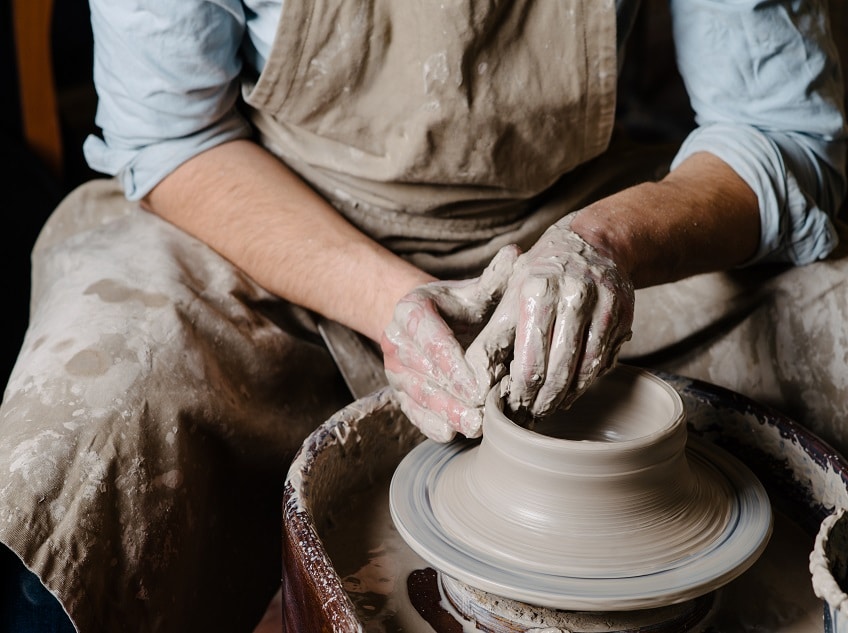Build your way to Pottery!
Pottery goes down as one of the first human civilizations. As a tool of showcasing our creative talents as humans, it has been known to give way too many inventions of the modern world today.
Not only does it show where we came from, but it also has a few health benefits of its own. For adults and children alike.
What are the benefits of learning Pottery?
While some people take pottery as a career course, others are in it for the health benefits it has. With the current state in our world driven by technology, pottery has been known to be a form of scapegoat or stress reliever from all the stress the world brings with.
It is believed to be therapeutic in so many ways. By improving the quality of one’s life, it makes you be in charge of yourself by needing you to be in focus, free to exploring and experimenting and at the same time being sociable.
Professional potters are known to be very artistic people. This form of art may take some time to master but reap good benefits out of through constant practice.
The minimum level of education required is a high school diploma.
With a high school diploma, one is able to have these values; Operation and control, Critical thinking, Monitoring, Attention to detail, Concentration, Active listening, Communication, Judgment and decision making, Time management, Self-tolerance and control, Independence, Leadership, Self-discipline, Confidence and Social orientation
Certificate
To be a self-proclaimed potter, the minimum qualification you just need a certificate
Undergraduate Degree
For people who want to dive deep into pottery, a Bachelor of Fine Arts in Ceramics is required.
It is usually a 4-year course where students learn more advanced skills in pottery such as glazing, firing, slip-casting, decoration wheel working and also the history behind it.
Post graduate
Few people do masters or PHD courses in fine arts but those who do are more concentrated to it full time than those who take pottery as an extra source of income or for self- enrichment purposes.
Course outline
Commonly referred to as ceramics courses, pottery can be a full-time major and may be taken as an associate’s program. For example, bachelor’s or master’s degree program in an art major.
However, it can also be learned for recreation or non-academic purposes. The course is diversely taken because you can engage after some high school education, during college, on an associate degree, bachelor’s degree, master’s degree or higher.
The classes are categorized as beginner, intermediate and advanced skill level. It comprises
of:
a) Beginning pottery
b) Introduction to throwing
c) History of pottery
d) Advanced hand-building and throwing
e) Sculpting
How can I apply Pottery?
A course in pottery can make you be self-employed. Potters sell their artistic work viagalleries, show rooms or personal studios.
There are other applications such as being a teacher in schools or private settings, summer camp instructor and art gallery or museum instructor. Others venture into the private sector as entrepreneurs by becoming large-scale manufacturers.
Potters can use their marketing skills by showcasing their creativity on various social media like online videos, magazines, blogs and the like with the aim of marketing their products.
If you are lucky enough to extend into fine arts, one can land the profession of an art director whereby he/she becomes in charge of designing print publications, film and television product packaging.
Interestingly, children who are exposed to early pottery by their parents have been known to be sharp as it helps them improve creativity, sensory development, self-esteem and problem solving.












Comments